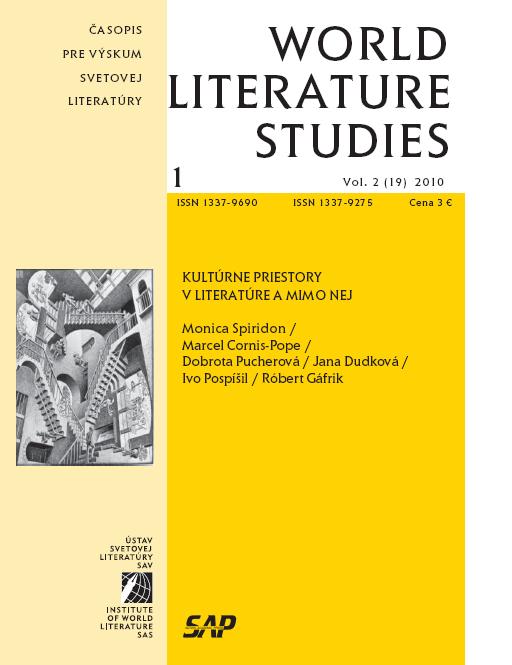Národné literatúry a diaspóry: k polycentrickému pojmu kultúry
National Literatures and Diasporas: Towards a Polycentric Concept of Culture
Author(s): Marcel Cornis-PopeSubject(s): Literary Texts
Published by: Ústav svetovej literatúry, Slovenská akadémia vied
Keywords: East-central European writers. Exile. Diaspora. Internal exile. Transnationalism. Hybridity. Cosmopolitanism.
Summary/Abstract: The present article argues that the expansive movements of creativity through exile, transplantation, and participation in transnational projects have played a defining role in East- Central European literature. The literary cultures of this area have often used their diasporic expansions to reaffirm but also problematize their national distinctiveness. The interplay between national and diasporic, local and global, has called into question any organic or totalizing concept of East-Central European literary and cultural evolution. The contours of this cultural region have remained variable, open to alternative mappings. Exiled writers play a significant role in this continuous redefinition. The cultural projects pursued by them were often hybrid, allowing for transnational agendas, as in the case of Emil Cioran, Witold Gombrowicz, Milan Kundera, Imre Kertész, and others who followed a trajectory of cultural detours and repositioning. The problematization of national and ethnic/local identity has gone even further in the work of “hybrid” minority writers, especially when confronted with the drama of exile and uprooting. Consider the case of the recent Nobel-prize winner, Herta Müller. Müller’s fiction, published after her emigration to Germany, represents the difficulties of life under both totalitarianism and the exilic condition, emphasizing the conflicting facets of her identity. Her work tries to reclaim a more inclusive, borderless notion of East-Central Europe, cutting across former Cold War divisions. While the late nineteenth-century East-Central European exiles sought a redeeming narrative that could reconnect their present to a mythic past, the Avant-garde writers of the early twentieth century broke radically with the past, deconstructing both Eastern and Western traditions. In addition to encouraging contributions from various cultural “peripheries” (Russian formalism, Czech structuralism, Romanian Dadaism, Hungarian and Serbian futurism), the historical Avant-garde managed to redefine the centers of Western cultural influence, bringing Europe closer to the ideal of a polycentric culture. During the second half of the 20th century, East-Central European literature continually shifted its boundaries, fractured between an internal, often-underground production, and the output of émigrés to the West. But while we focus on refugees and exiles, we should not overlook the important contribution of internal exiles to an alternative literary canon, nor the continuity between internal and external exile. The collaboration between transplanted and native writers is equally important in post-1989 East-Central Europe, as the literary cultures of this area are submitted to a process of critical reexamination and cross-cultural reconfiguration.
Journal: World Literature Studies
- Issue Year: II/2010
- Issue No: 1
- Page Range: 10-25
- Page Count: 16
- Language: Slovak

